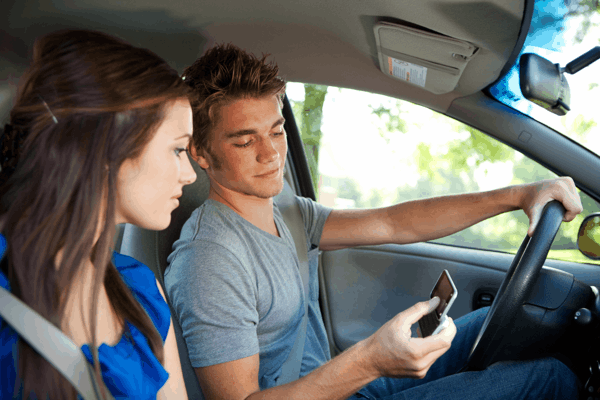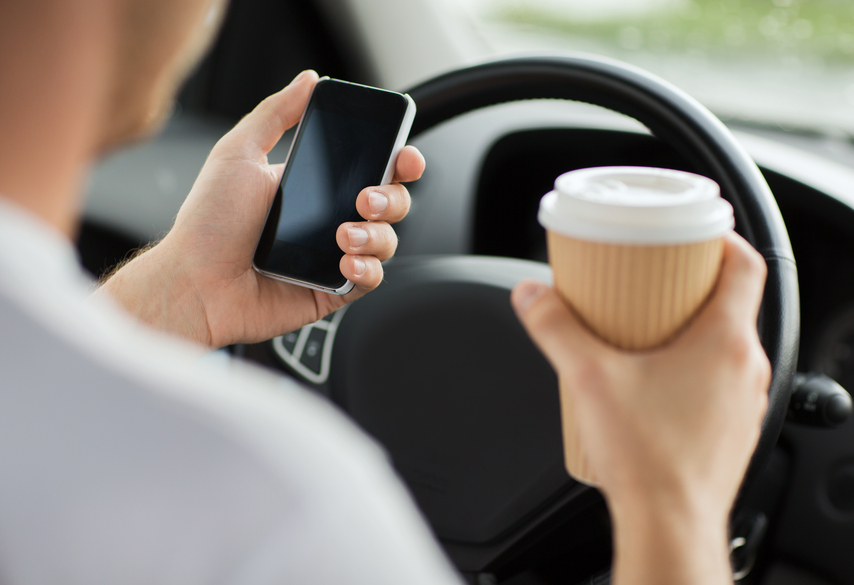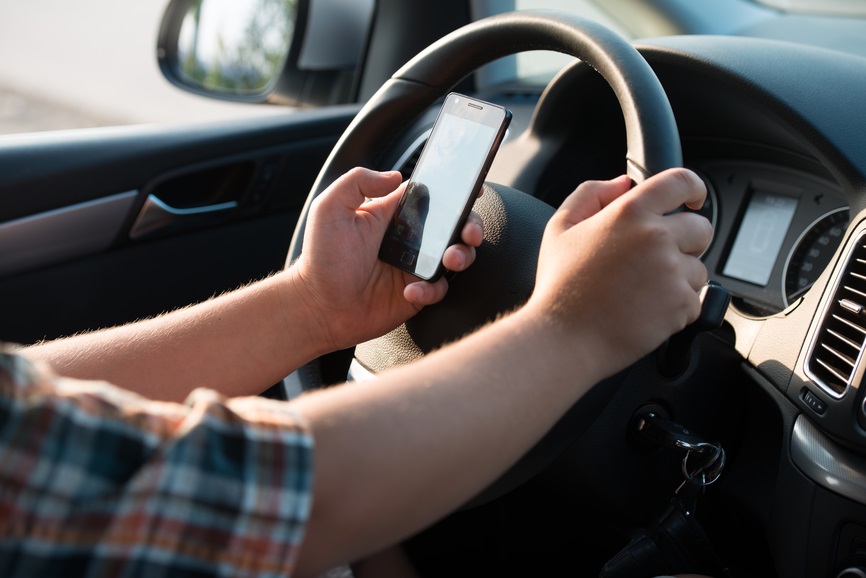When your teenager gets behind the wheel, you can't always go along with them. That means that you can't perfectly prevent distracted driving behavior—and unfortunately, teenagers are guilty of distracted behavior behind the wheel all too often. Up to a quarter of teenagers admit to receiving and responding to text messages every time they're behind the wheel. More than 10% of drivers under the age of twenty who were involved in fatal crashes were driving distracted when the accident occurred.
Read More »"Jake’s Law" Addresses Penalties For Distracted Driving
We already know that distracted driving is dangerous and, as demonstrated in this case, can be deadly. See what lawmakers are attempting to pass in Congress this month in efforts to crack down on distracted driving. This article was originally posted on the Washington Post by Jenna Johnson.
Five-year-old Jake Owen played a video game in the back seat of the car as his family sat in Baltimore traffic. He excitedly announced, “Mom, I have 42 lives!” Then an SUV slammed into the sedan.
Devin X. McKeiver, 23, was using a cellphone when he rear-ended the car. He didn’t hit the brakes. The impact killed Jake.
Had McKeiver been drunk, he could have faced jail time. Instead, with his lawyer arguing at trial that McKeiver was doing something that everyone does, he was fined $1,000.
Now Jake’s family and others are asking Maryland lawmakers to increase penalties for drivers who cause crashes while talking or texting on a handheld phone. The bill, known in Annapolis as “Jake’s Law,” also would require “distracted drivers” involved in serious crashes to give police basic information about their cellphones, so detectives can more quickly check what they were doing at the moment of impact.
Privacy advocates say that sort of forced hand-over of phone information is unnecessary, and makes it easier for police to access and follow the digital trail that most Americans now have. But proponents say the phone-data portion of the bill is merely the 21st-century equivalent of requiring a blood test for drivers suspected of being intoxicated.
Read More »Blog Series: Digital Parenting and Distracted Driving Awareness Month
As part of our digital parenting and Distracted Driving Awareness Month blog series, we are featuring a post by Next Step Academy, the online school for life skills. They are offering a free distracted driving course that everyone should take! Read on to learn more and learn some shocking statistics. Free Distracted Driving Course
You may remember that feeling when you first sat behind the wheel of a car – nerves take over, senses heighten, and we wonder how we will ever figure it all out. Driving demands a lot from the person behind the wheel, and it can be overwhelming to any first-timer.
A new driver must immediately figure out how to maintain focus and control, and in the beginning, it can seem impossible that we might ever be able to do anything other than grip the wheel; but at some point, we get comfortable. We forget the fear that once gripped us when we first gripped that wheel, and foolishly, we add tasks to our drive in addition to keeping our eyes on the road and our hands perfectly positioned at “10 and 2.”
Blog Series: Digital Parenting and Distracted Driving Awareness Month
Our latest guest blog post on digital parenting comes from the team at UPS Road Code, which is pairing with the Boys & Girls Clubs of America and doing wonderful things to help combat texting and driving among new drivers. In honor of Distracted Driving Awareness Month, read on to learn more about these programs and solutions.
Boys & Girls Clubs of America and UPS Foundation Drive Change
With National UPS Road Code Program
While great strides have been made in recent years to prevent distracted driving deaths among teenagers, the United States still has a long way to go to completely eradicate the problem. In a world constantly connected through texting, social media updates and gaming applications, teens are constantly engaged with their phones, even while driving. According to a study by the Governors Highway Safety Association, deaths of drivers ages 16 and 17 increased by 19 percent in the first six months of 2012 compared with the same period in 2011. The association attributed this increase to texting and talking while driving, as well as the use of mobile applications which can slow driving reaction times by 38 percent.
In an ongoing effort to combat the ever-growing issue of distracted driving, The UPS Foundation, which governs corporate citizenship and UPS’s philanthropic programs, offers UPS Road Code, a national program to teach safe driving techniques to teens. The Foundation teamed up with Boys & Girls Clubs of America (BGCA) and established the program on a small scale in 2009 in local Clubs across 10 cities. Continuing to drive change across the country, the highly successful UPS Road Code program is currently available in 52 Boys & Girls Clubs throughout 36 U.S. cities and reaches 5,200 teenagers nationwide.
Blog Series: Digital Parenting and Distracted Driving Awareness Month
Did you know that the month of April is Distracted Driving Awareness month? Distracted driving can range from anything to eating and drinking, talking to passengers and grooming, but most frequently happens in the form of using a cell phone or GPS while behind the wheel. As part of our ongoing mission to inform you of the latest digital dangers, we asked doctors, leaders, CEO's and experts in distracted driving awareness if they would contribute to our blog with a guest post on this extremely important issue that is facing connected kids who get behind the wheel. Our first blog post comes from Matthew Smith, a second-generation director of Longacre Leadership, the incredible summer program for teens that teaches leadership, decision-making and responsibility with a MiniCamp for tweens.





